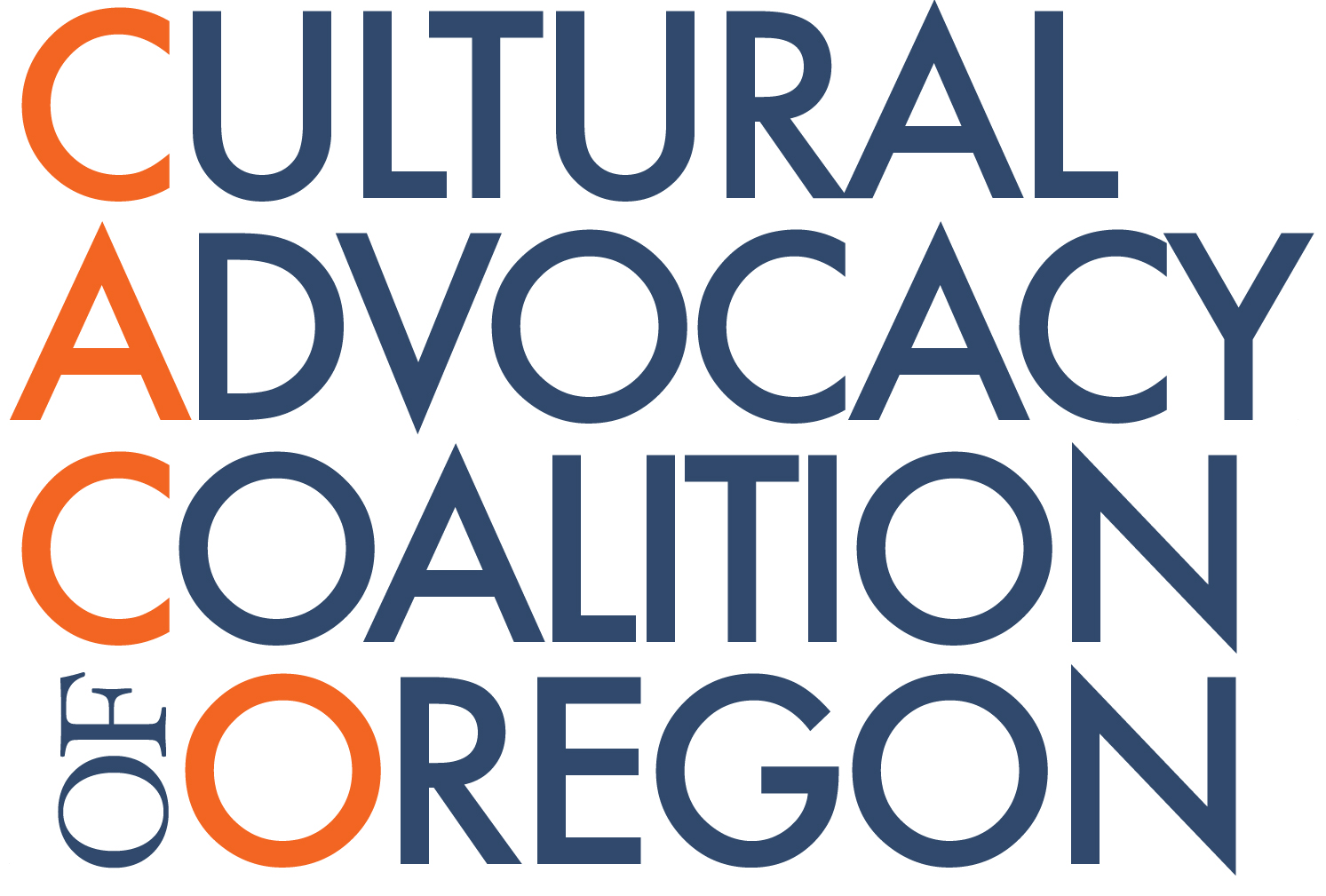Our highest priority for the past year has been the continued recovery of Oregon’s arts and culture sector from the pandemic. We believe that access to arts, culture, heritage, and humanities heals and transforms people.
It’s likely to take five years for our largely in-person performance-based sector to transform and reshape itself to connect with Oregonians.
In this report, we’ll share what we accomplished in 2022 and what we see for 2023.
Accomplishments in 2022:
- ARPA funds distributed: After securing $50 million in recovery funds from the Coronavirus Aid, Relief and Economic Security Act (CARES) and $50 million from the America Rescue Plan Act (ARPA) funds for the sector in 2021, we spent much of 2022 trying to get those funds distributed to the sector.
- Governor forums: We facilitated forums with candidates for Oregon’s new governor. Both Betsy Johnson and now-Governor Tina Kotek heard directly from arts and cultural providers.
- Historical property advocacy: We participated in the historical property tax group convened over the biennium to help with a long-term solution for this tax credit. We will support legislation in 2023 to extend the current state while a solution is constructed.
- Federal advocacy strategy: We formally launched a federal advocacy effort geared towards informing and influencing Oregon’s congressional delegation. With funding from the Oregon Community Foundation and expertise from Oxley & Associates, we developed a federal advocacy strategy and started deploying tactics for elevating the sector in Washington, D.C. We had almost immediate results:
- We offered a training session in congressionally directed earmark spending to our donors.
- We gathered signatures from Oregon arts & culture organizations on a letter to U.S. Senator Jeff Merkley. We believe this letter helped influence the exciting $207 million increase in the National Endowment for the Arts budget.
- U.S. Representative Suzanne Bonamici recently held a workshop to help our statewide members better access federal funding through grants from the National Endowment of the Arts and the National Endowment for the Humanities.
- We gave feedback on Rep. Bonamici’s CREATE Act which could provide congressionally directed earmarks for arts and culture capital needs.
- We further developed relationships with Americans for the Arts, congressional staff, and other partners who support our mission.
Legislative Agenda for 2023
In 2023, we will propose our most ambitious agenda ever to policymakers in the upcoming state legislative session:
- Additional recovery funding: We continue to seek an additional $50 million in recovery funds from the state. Each new variant of COVID-19 dissuades people from publicly experiencing the arts. Our state’s major arts & culture organizations such as the Oregon Shakespeare Festival, which typically drive economic activity in their communities, are still in a very fragile state.
- Capital projects: We will present a highly diverse slate of 16 statewide capital projects to the legislature for a total of $11.88 million. These projects range from small to large, urban and rural to tribal, and encompass a variety of treasures across Oregon. We were pleased to have over 40 applicants and to endorse 17 as ready for state investment.
- Long-term funding solution for the Oregon Cultural Trust (OCT): We have been consulting with advocacy experts to craft a long-term funding solution for OCT. When the OCT was designed, it was supposed to be funded in two ways: (1) donations from Oregonians, leveraged by a unique tax credit and (2) the sale of public lands. Most of the funding ($200 million) from the sale of public lands did not occur. In the 2023 session, we will seek to secure the original promise of $200 million for OCT. We will propose to fund it through the sale of lottery bonds, with interest and earnings used for grants to the 1,600+ nonprofit organizations currently eligible for OCT funding.
- More Oregon Arts Commission (OAC) grants: We are partnering with OCT and the OAC to seek a $10 million increase for grants to the field from the OAC.
- Increased Capacity at OCT/OAC: We support lifting the administrative cap that limits the capacity of these agencies to best serve the sector.
Cultural Advocacy Coalition Foundation:
We also established a sister organization, the Cultural Advocacy Coalition Foundation (CACF), which we incorporated as a nonprofit entity (IRS approval pending) to focus on public information and education. We have established a board, articles of incorporation, and bylaws and are working on a business plan.
CACO Donors:
Donations remain steady allowing us to have a year’s worth of operating budget in reserves. We attracted a handful of new donors this year offset by those who moved on. Our financial position is strong, despite increasing costs and the need to engage more advocacy expertise for both our long-term funding strategy and our federal agenda. Both investments are paying off, and we are eager for the year ahead.
We look forward to launching the CACF and sharing our exciting future with foundations and other funders who cannot support an advocacy organization but may be able to support the foundation.
Commitment to Equity, Diversity, and Inclusion:
We continue to center equity, diversity, and inclusion in our work and use our racial equity lens in many different ways:
- How we select capital projects
- How we hire contractors
- How we recruit new board members
- Speaking out against discrimination and intolerance in our communities, including the harassment of Oregon Shakespeare Festival director Nataki Garrett and replacing Oregon’s racist place names
- Amplifying the voices of historically excluded communities in our blog posts about Maxville, Minoru Yasui, Pride Month, and native artists and performers
We are committed to lifting up all people and eliminating racism in our sector and state.

